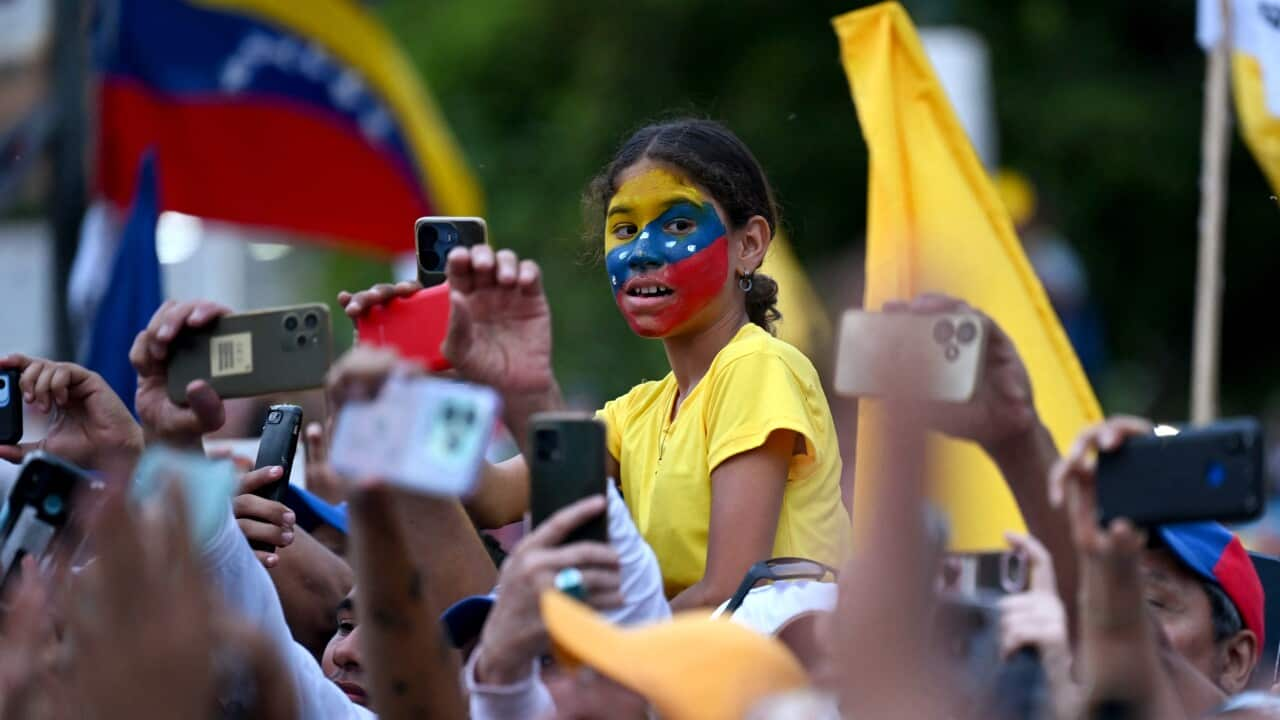Key Points
- Paco Ortiz underwent gay conversion therapy as a teenager in Mexico as he struggled to accept his sexuality.
- Now living in Sydney, he says he freely celebrates his identity, aware that many others cannot.
- Victoria, Queensland and the ACT have passed legislation banning conversion practices that aim to change the sexual orientation, gender identity or expression of LGBTIQ+ people.
Growing up in Mexico in the 1990s, Paco Ortiz was haunted by the beatings that another boy received at school for being openly homosexual.
One teacher, instead of putting a stop to the violence, advised students not to "attract these kinds of problems" for themselves.
Mr Ortiz told SBS Spanish that, as a devout Catholic coming to terms with his sexuality, the stigma weighed heavily on him.
'Father, I am homosexual, but I don't want to be'
In 2008, he opened up to a priest, telling him, “Father, I am homosexual, but I don't want to be.”
The priest advised him to undergo gay conversion therapy with a psychologist.
This so-called therapy, which aims to change the sexual orientation, gender identity or expression of LGBTIQ+ people, has been banned in several countries.
In Australia, Victoria, Queensland and the ACT have passed legislation banning conversion therapy, while NSW Labor leader and incoming premier Chris Minns had pledged to bring an end to the prior to this month's state election.
National LGBTIQ+ advocacy group Equality Australia is calling for a comprehensive country-wide response to conversion practices.
“These practices, underpinned by ideologies that see LGBTQ people as broken, instead of whole and human, cause great harm to LGBTQ people, especially LGBTQ people of faith,” an online petition from the group reads.
Mr Ortiz, now 39, said the "horrific" experience had a long-lasting impact on him.
“The first sessions were electroshock sessions. It was very raw for me,” Mr Ortiz said.
Electric shocks were applied while the psychologist made me watch pornography, it was anti-human.Paco Ortiz
Feeling the need to "preserve" his life which revolved around the church, Mr Ortiz endured the practices for about four months until his then-girlfriend, now a good friend, made him reconsider.

Paco Ortiz with his parents and brother at the airport in Mexico, on the way to Australia
“So, when she left me, I decided to stop running away from my homosexuality, to accept it and get to know it, because I was so afraid of it.”
Mr Ortiz left the job he had with the Catholic Church and set up a graphic design and marketing agency on his own. He spent a year deeply dedicated to his work until he felt up to meeting other men.
Dating apps didn't exist back then, but one day he met a Colombian man online.
“We started to find a lot of shared interests. And I was happy to finally be able to talk to someone about my true feelings, and to feel reciprocated and loved.”
Mr Ortiz took a plane to Colombia, a trip he said changed his life.
“Everything changed for me the moment he greeted me at the airport and gave me a kiss. I felt butterflies, earthquakes, electricity ... everything.”
That kiss changed everything. This is what I had waited for all my life.Paco Ortiz
The long-distance relationship lasted no more than a year and, after other relationships, Mr Ortiz travelled to Australia in 2018 encouraged by a cousin who already lived in the country.
With the opening of borders after the pandemic, he returned to Mexico for the first time in five years to attend his brother's wedding, still afraid of rejection from his extended family.
But he was pleasantly surprised.
“I had spoken to my parents, but I had never spoken directly to my uncles, my cousins, everyone else. I had the opportunity to talk to them and none of them judged or opposed me, and I was very well received.”

Paco Ortiz (third from right) with his parents and five siblings.
I would have loved to be a teenager in today's Mexico.Paco Ortiz
A celebration of sexual diversity
Mr Ortiz's journey to self-acceptance culminated in him participating in his first Mardi Gras parade in Sydney in 2018.
“I cried the whole event. For me, it wasn't real. Seeing the police, the government, corporations and religious groups participating in the parade, seeing so many people joining the cause and showing respect ... I was crying for hours and hours.”

Paco Ortiz (centre) with friends in his first Mardi Gras in 2018
“We're celebrating, but there are places in the world that need to make progress. If we shut up and they don't see us, then they won't move forward.”

Paco Ortiz
If you are going through a situation of depression or have suicidal thoughts, contact on 13 11 14, 24 hours a day, seven days a week.
There is also the Australian services office in all languages on 131 202, or you can consult .






